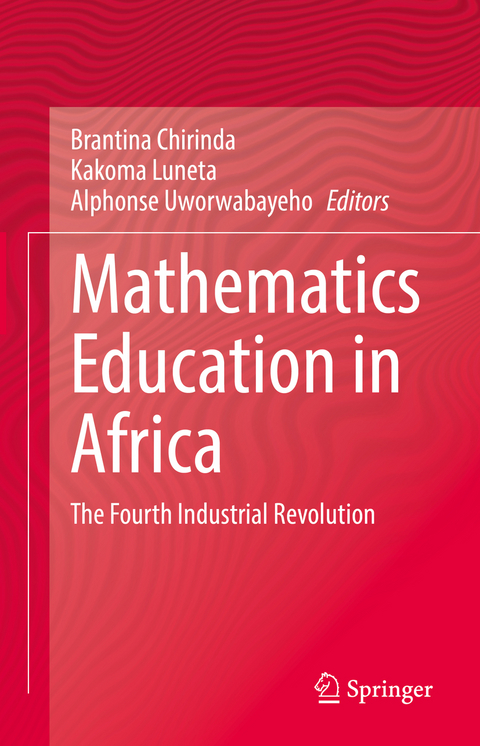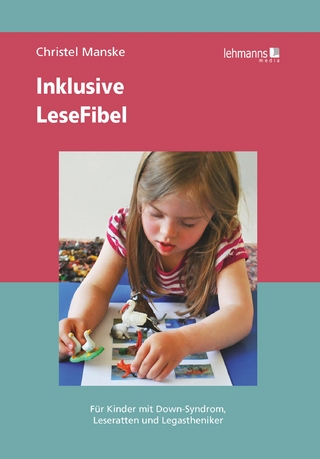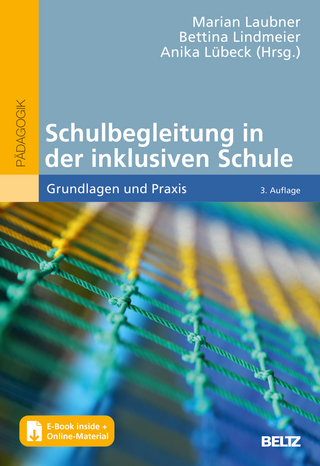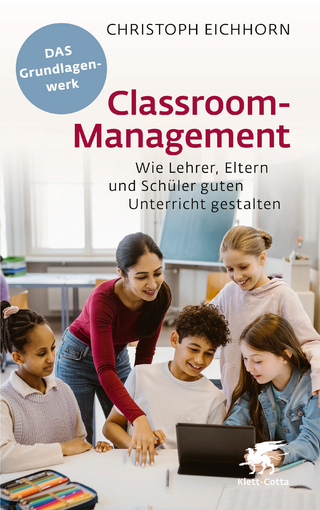
Mathematics Education in Africa
Springer International Publishing (Verlag)
978-3-031-13926-0 (ISBN)
This book highlights a new era of innovation in mathematics education in the context of the Fourth Industrial Revolution, leading to the rapid emergence of new technologies in mathematics teaching and learning. It is a valuable resource for graduate students, people with research interests in the fourth industrial revolution and mathematics educators at any level, including all mathematics teachers; mathematics education curriculum designers and policymakers.
Brantina Chirinda is a lecturer of Mathematics and Mathematics Education in the Faculty of Education at Cape Peninsula University of Technology (CPUT), a research associate at the University of Johannesburg (UJ) and a visiting research fellow at the University of California at Berkeley. Dr Chirinda holds a PhD in Mathematics Education from the University of Witwatersrand. She is interested in the teaching and learning of mathematics in contexts of disadvantage, specifically focusing on mathematical problem solving and equitable access to content in the mathematics classroom. She has taught Mathematics and Mathematics Education courses at various Southern African institutions for over 20 years. She has published several conference proceedings, book chapters and articles in accredited local and international journals. She has presented her work at several national, regional, and international conferences. Dr Chirinda leads a community project, Southern African Mathematics Empowerment Network (SAMENET), envisaged to empower female mathematics teachers and learners in contexts of disadvantage.Kakoma Luneta is an Associate Professor of Mathematics Education in the Faculty of Education at the University of Johannesburg, South Africa, where he has been a faculty member since January 2005. Dr Luneta holds a PhD in Mathematics Teacher Education from the University of Witwatersrand and a Master's in Mathematics Teacher Education from the University of Sussex in England. His research interest is in Mathematics Teacher Education at Secondary and Elementary school; Mathematics/numeric cognition, and Professional Development and Mentorship of Mathematics Teachers. He has taught mathematics and physics in various Northern and Southern African countries, the UK and the US. He has supervised to completion several masters and doctoral students from Sub Sahara Africa, Greece and South Korea. He has published four books, over 30 book chapters and articles in accredited journals. Dr Luneta was recently appointed a Visiting Scholar at the University of Cambridge Centre for Neuroscience in Education (CNE) and was once a Visiting Associate Professor of Mathematics Education at the University of British Columbia in Canada and a Visiting Scholar at Stanford University in the US. He has also been an invited Keynote Speaker at various academic meetings.Alphonse Uworwabayeho is a senior mathematics lecturer at the Early Childhood and Primary Education department in the School of Education, the University of Rwanda-College of Education. He is a member of the African Centre of Excellence for Innovative Teaching and Learning Mathematics and Science (ACEITLMS) research committee based in the UR-CE and commissioner on mathematics education for the African Mathematics Union (AMU). His research interest includes integrating ICT in the teaching and learning of mathematics and teacher professional development on active learning.
Chapter 1: Is Africa ready for the 4IR? Fidele Ukobizaba, Ezekiel Nsabayezu and Alphonse Uworwabayeho.- Chapter 2: Can the Fourth Industrial Revolution (4IR) resolve why the teaching of mathematics in the current paradigm continues to be decontextualised and ineffective; Kakoma Luneta.- Chapter 3: Alignment and Gaps of the Competency-Based Mathematics Curriculum and the Fourth Industrial Revolution; Penina Kamina and Mary A. Ochieng.- Chapter 4: Mathematics educators' readiness for online education in the Fourth Industrial Revolution - A case of two selected Universities in Ethiopia; Tola Bekene Bedada; France Machaba; and Mekdes Minjar Manea.- Chapter 5: Mathematics Education and the Fourth Industrial Revolution (4IR): Are the High School Mathematics Teachers Ready in Nigeria?; Musa Adekunle Ayanwale, Mdutshekelwa Ndlovu & Jumoke Iyabode Oladele.- Chapter 6: Revamping the Zimbabwean mathematics curriculum to align it with the demands of fourth industrial revolution; Gladys Suzuma, Conilius Changwiza, and Brantina Chirinda.- Chapter 7: Redefining Distance Learning for the African Context: Lessons Learnt from Egyptian Educators; Mariam Makramalla.- Chapter 8: Implementing Assessment as Learning with Computer Adaptive Learning for Enhancing STEM Education in Africa: A Fourth Industrial Revolution Possibility; Jumoke I. Oladele, Mdutshekelwa Ndlovu and Musa A. Ayanwale.- Chapter 9: Teaching and Learning Mathematics Using Technology in Basic Education Schools in Rwanda; Emmanuel Iyamuremye, Joseph Njiku, Jean Francois Maniraho, Irenee Ndayambaje, and Charles Magoba Muwonge.- Chapter 10: Exploring the challenges concerning the teaching and learning mathematics during the fourth industrial revolution in the selected Rwandan secondary schools; Aloys Iyamuremye, Jean de Dieu Kwitonda, Ezechiel Nsabayezu and Jean Claude Habimana.- Chapter 11: An experimental approach for learning mathematical functions in secondary school using GeoGebra software in Niger republic;Abdoul Massalabi NOUHOU and Abdou Moumouni.- Chapter 12: Instances of instrumental orchestration when a teacher integrates GeoGebra in solving linear inequalities in the context of linear and quadratic functions; Charles Smith.- Chapter 13: Fault lines in designing learning activities for practising mathematics teachers: An autoethnographic account; Cyril Julie.- Chapter 14: Factors Influencing Preservice Teachers' Adoption of Interactive Social Media Platforms in Mathematics Teacher Education in Malawi; Fraser Gobede, Mercy Kazima and Justina Longwe.- Chapter 15: The Use of Animal Metaphors to Reveal Self-perceptions of Grade Three Namibian Learners Who Experienced Mathematics Learning Difficulties During the COVID-19 Pandemic Cloneria Nyambali Jatilen and Shemunyenge Taleiko Hamukwaya.- Chapter 16: Using 4IR to enhance learners' self-regulated skills to solve circle geometry problems; Puleng Motseki.- Chapter 17: Emerging realities from COVID-19 and the 4IR: mathematics education lecturers' autoethnographic experiences; Hlamulo Mbhiza, Zingiswa Jojo, Masilo Motshidisi and France Machaba.- Chapter 18: WhatsApp as a social media to enhance dialogic interactions in mathematics: Grade 9 teachers and learners' voices; Tshegofatso Makgakga.
"The book is a valuable window into modern mathematics education in Africa ... . It also serves as a mirror to the Global North reflecting the deleterious impact of colonization. ... Mathematics Education in Africa: The Fourth Industrial Revolution is potentially of interest for any mathematics educator who feels that they and their students were unique in experiencing the devastating effects ... . Not only mathematics educators and researchers but policy makers as well will benefit from this book." (Jennifer T. H. Hylemon, Educational Studies in Mathematics, Vol. 115 (!), 2024)
| Erscheinungsdatum | 30.11.2022 |
|---|---|
| Zusatzinfo | XXIV, 331 p. 50 illus., 35 illus. in color. |
| Verlagsort | Cham |
| Sprache | englisch |
| Maße | 155 x 235 mm |
| Gewicht | 691 g |
| Themenwelt | Sozialwissenschaften ► Pädagogik ► Schulpädagogik / Grundschule |
| Sozialwissenschaften ► Soziologie | |
| Schlagworte | Digitisation in Mathematics Education • ICT in mathematics education • mathematics education • Mathematics Education in Africa • teaching and learning of mathematics • Technologies of Teaching Mathematics |
| ISBN-10 | 3-031-13926-7 / 3031139267 |
| ISBN-13 | 978-3-031-13926-0 / 9783031139260 |
| Zustand | Neuware |
| Haben Sie eine Frage zum Produkt? |
aus dem Bereich


